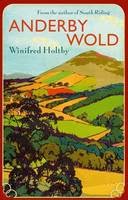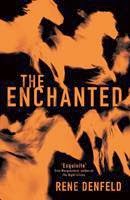So another week is just about done, and over the last couple of days
I've been being kept very busy with excessive amounts of non book related
activity. So much sewing, mending, ironing and other activities that sadly
allow no room for reading. Much as I am able to read as I walk, cook and knit;
even I have yet to master using a sewing machine with a book in the other hand.
However I have still managed to read some quite brilliant books over the last
few days.
I have only recently discovered Winifred Holtby,
adding her to the list of female authors of the 1920s-1940s who I adore. E M Delafield, Stella
Gibbons, Barbara Comyns,
all wonderful authors. In fact there are so many female authors of the period
who go unnoticed and who really shouldn't. Having once managed to find a small
stash of D E Stevenson books in the Cornish library system I fell in love with
these funny little books too. I am so pleased that so many of the Stevenson
books seem to be coming back into print, with The Four Graces being reissued in July 2014. However.....
back to the point in hand Winifred Holtby......
Despite having had South Riding on my bookshelf for quite some time, I only
started reading it while waiting for a holiday flight last summer. I was
immediately drawn into the world of petty bourgeois council issues, and small town thinking. What fabulous
characters, how real they all are. I know Mrs Beddows
was strongly based on Winifred's own mother, and that she used her experiences
of family involvement with the East Riding council to form the basis of the
book. So it is not surprising that the characters are well drawn... they are
literally drawn from life. Having read, what is considered to be her
masterpiece, my next stop was Poor Caroline. This seems to be the odd one out
of her books; it transports us away from the Yorkshire dales, and instead
focuses on the hopes and aspirations of 'Poor Caroline' the archetypal poor relation busybody. Despite it being so
totally different from South Riding, I still adored reading Poor Caroline. So
when I needed something light, something from an older time, something that I
knew would be gentle and amusing. Something to contrast against the harrowing
experience of The Enchanted.... I went straight for the collection of Winifred Holtby
waiting for me on top of one of my many bookcases. I am so pleased that I did. Anderby
Wold was the first book Holtby wrote, and is very much a
book of it's time. That moment in the early 1920's where the old Edwardian
spirit of master and men was being overthrown by the awakening consciousness
that worker's rights could amount to proper political movements. Family resentments play a huge part in this work, the poisonous spite behind some of the actions taken by members of the Robson clan made me wince. There is an almost 'Shirley Valentine' feel to Mary as she struggles to find a meaning to her life, making herself 'invaluable' in Anderby despite the resentment this causes. As a first novel this shows such promise, so many perfect little moments, despite the ending which seems to owe quite a lot to the rural hopelessness of novels like Jude.
I mentioned that I had to find something light once I had finished The Enchanted. This is a deeply harrowing read. Only to be expected, it is set in the brutal world of Death Row, and it's author Rene Denfeld is actually a death row investigator; this isn't simply a fantasy of the conditions, this will have a basis in fact. Write what you know, that's what people say. I get the feeling that Denfeld has followed this advice. The story is brutal, and traumatic with glimpses of deeper traumas hidden under the surface. Denfeld is rarely explicit, she allows the reading to use their imagination to think of the worst scenario. This is a dreadfully effective way of writing a story like this. The main narrator is one of the inmates, a man who seems to be a gentle, simple individual. It isn't really until we learn his name (in the final stages of the story) that we start to sense the horrors that have led him to his current situation. This prisoner has made sense of his life by creating some semblance of a magical world that exists parallel to that inside the prision walls. Try to imagine the worst moments of Shawshank and multiply them many many times over. You will come close... maybe.
The Foundling Boy is a perfect novel. Simply perfect. It has a post of it's own so I won't spend too much time discussing it. It is just something that should be read, savoured. The second book isn't due out until October, 9 months away..... that seems like a very long time. Probably not long enough for me to translate the French original though sadly. C'est la vie.....



No comments:
Post a Comment